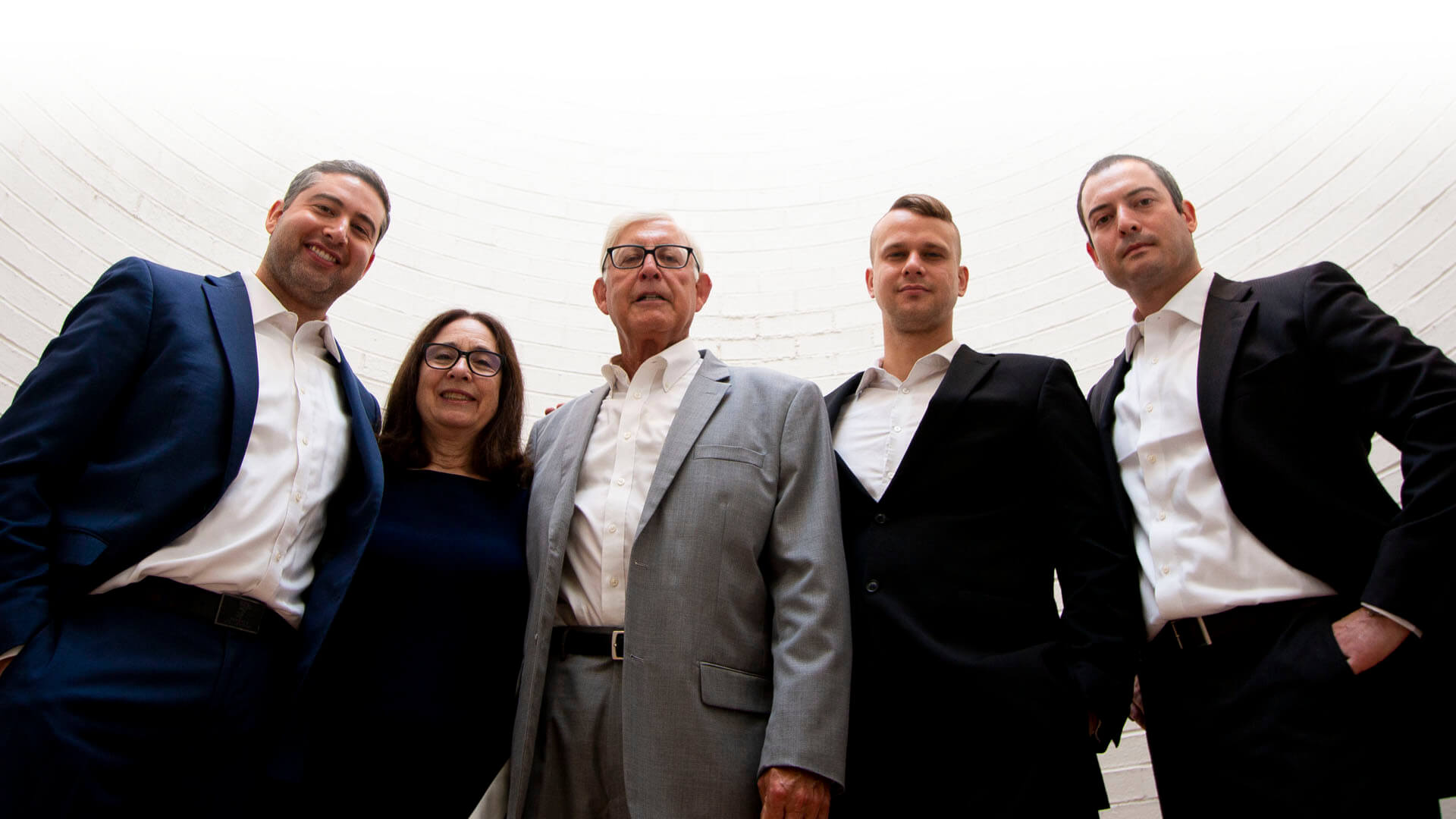Frequently Asked Questions
How long will my case take?

Personal injury cases can be difficult to manage, especially if you’re not familiar with the legal system. A common question that we hear from our clients is “How long will my case take?” The answer to that is nearly impossible to give on the spot as there are many factors that can ultimately decide the length of any legal matter. From the type of case, the complexity, and other parties involved – many variables can determine how long it may take to reach a verdict or settlement in a personal injury case.
In this article we’ll review some of the most common elements and procedures to consider during a personal injury case to help you get a better understanding on how long a case may last.
Table of Contents
How long will my personal injury case take?
The time it takes to settle a personal injury case depends on several factors, most notably the complexity of the case, the severity of the injury sustained, and how much time it takes to gather evidence. In addition, you should also consider how long it takes to negotiate a settlement.
Some cases can be settled rather quickly, while others can take years.
To give some perspective, according to NOLO.com half of their readers had personal injury claims resolved within two months to a year while 30% waited over a year for their cases to be completed. In total, the overall average was 11.4 months.
Without a doubt, having an experienced attorney can make the process go smoothly and efficiently. It’s important that you work with an attorney who understands the complexities of your case and will be able to explain them in simple terms so that you can make informed decisions and receive the best outcome in the timeliest manner possible.
How do I choose the right personal injury attorney?
The most important thing you can do is hire an experienced attorney. Personal injury attorneys have years of experience in handling these cases, and they know how to navigate the legal process.
When hiring a personal injury lawyer, it’s important to know about their experience and history. Some common questions may include:
- How many cases have they handled?
- What kind of results have they obtained for their clients? (i.e., number of settlements/wins/losses)
- How much money has been recovered for the clients over the years?
- What type of law do they focus on? (product liability, medical malpractice, etc)
What type of complications can occur during a personal injury case?
If the case is not handled properly, it can lead to complications. Complications could lead to a longer legal process and less favorable outcomes for you and your family.
Common complications can include 1 :
- Nature of the Case
Cases that are considered standard may be faster to resolve than other types of cases. For example, automotive accidents are usually faster to settle than other types of personal injury cases, including medical malpractice or premises liability - The Complexity of the Case
Cases that are more complex may require additional time by the insurance company, personal injury attorney and defendant. Meaningful aspects of the case may be at issue, including questions of liability and damages. - Jurisdiction
Areas in which there are many cases going on at once may take longer to resolve than they are handled in other areas. If the case goes to court, it will take longer to process in a jurisdiction with a flooded docket than in a jurisdiction with relatively few cases - Insurance Company
The insurance company that is handling the claim can have a significant impact on how long a case may take to be resolved. Some insurance companies may have policies in place to resolve claims within a certain period of time. Other insurance companies may take a slow and steady approach to carefully weigh the merits of each claim. An insurance company’s internal workings often affect the timing of resolving a personal injury claim. Additionally, insurance adjusters who are handling many cases at once may take longer to resolve a case than an insurance adjuster who does not have many cases at the time of the accident. Cases in which an insurance company is not associated can prolong the case. Defendants may lack the necessary resources to pay on a valid claim. They may wish to fight the case rather than settle for a large award that they cannot afford. - Liability
Cases in which liability is not at issue may settle more quickly than other cases subject to multiple interpretations. If the defendant contests liability, the case may not settle at all and the parties may wait for a jury to determine which party was at fault and economically responsible for the damages that resulted. - Personal Injury Attorney
Different personal injury attorneys handle cases differently. Some are one-lawyer offices in which one person handles all of the investigation, pleadings and negotiations. Others may be more efficient by delegating tasks to multiple people. Attorneys who are experienced with the cases may be able to handle them more quickly than attorneys who do not have experience in personal injury law. Likewise, if a personal injury attorney is handling many cases at once, it may take him or her more time to settle the case than other attorneys. An attorney usually begins the evaluation of a case by gathering important information about the accident and the defendants. He or she then notifies the defendant and his or her insurance company of the claim and his or her representation of the victim. The personal injury attorney then assesses the level of damages. Seeking prompt medical attention is often paramount to recovering. The time that it takes the personal injury attorney to work through these tasks is connected to the overall amount of time that a case may take to settle. - Medical Evaluation
A case may also be prolonged because of the victim’s medical evaluation. Generally, before a personal injury attorney will settle a case, he or she will wait for all of the medical expenses and other damage reports to come in. Medical evaluations may take more time in complicated cases, such as when the extent of the injury is not known at first or the injury is an aggravation of a previous injury. While waiting for medical tests and expenses to come back may be difficult for a victim with mounting medical concerns and expenses, taking time with this area of the case is usually in the victim’s best interest.
How do negotiations work?
The first step in the settlement process is for your attorney to provide a written settlement offer. This document should outline what you are seeking as compensation, and explain why you believe it is fair. The more detailed and persuasive your case, the better chance you have of getting what you want.
You will also want a good lawyer who knows how to negotiate with insurance companies and other attorneys representing defendants, whether they be government entities or private citizens. A strong negotiator can help ensure that your case gets settled quickly and efficiently without having to go through lengthy litigation proceedings – such as going to court. (Read: “Should I settle or go to court?”)
How do settlements work?
After negotiations, the insurance company will then make settlement offers.
These offers are usually low and you should expect to be on the receiving end of one that you don’t like. You can always reject the offer and wait for a better one, but if there are no more offers filed within a certain period of time (usually 90 days), your case may be dismissed, with no options left except for filing an appeal or simply accepting that nothing else can be done.
The attorney will negotiate with the insurance company’s lawyers over these offers. They know that they cannot just pay any amount without risking having to pay back all or most of what they paid out if they lose at trial, so they’ll try to get as much money as possible while still staying under budget. If your attorney thinks that she can get more money than what was offered originally—say $30,000 instead of $25,000—she’ll try asking for it first before going into negotiations with her client’s approval; however this is often not possible because clients rarely have enough information about their cases at this point in time to know whether or not increasing their demands would help them achieve more favorable terms overall (e.g., getting another $10K might help them avoid paying back more than half of what gets paid out).
If after negotiations have ended unsuccessfully there are no further offers filed by either party within 90 days from when negotiations started then both sides’ attorneys will submit proposed orders requesting final judgment based on past agreements reached between themselves through mediation sessions held during those initial 120 days from when lawsuits were originally filed with courts.
How can I make my case go as smoothly as possible?
Hiring an experienced attorney will ensure the process goes as smoothly as it possibly can. A lawyer who is familiar with how these cases work, and how insurance companies operate, is more likely to be able to navigate the process with your best interests in mind. They’ll know what kinds of arguments are likely to be persuasive and which ones won’t hold up in court.
If you’re not sure, a good starting point is to check out reviews from previous clients on Yelp or Avvo – a website that aggregates ratings for lawyers. Also, consider talking with friends who have hired attorneys for similar cases — you may be able to get some recommendations from them about which lawyers have proven successful.
Still have questions? Need some guidance on your personal injury case? Contact our team today for a free consultation.
Answered By:
Attorney Jason SchiffmanMore About Jason:
Jason M. Schiffman, Esq. is an experienced litigator practicing primarily in the fields of personal injury, products liability, estate litigation, and corporate litigation. Attorney Jason Schiffman has personally served as lead counsel in the litigation of over four hundred cases or claims.
More Frequently Asked Questions
What do I need when I meet with an attorney?
How Can You Tell When an Attorney-Client Relationship Is Established?
Are Attorneys Allowed to Advertise?
Where can I find recall information for Amazon and Walmart products?
Which Goodyear tires have been recalled?
What are the most recent tire recalls?
What were the most expensive product recalls of 2023
What are the biggest automobile recalls of 2024?
What are bowriders and why are they dangerous?
What are the dangers of infant inclined sleepers and beds?
When Bad Products Hurt Good People - Your Case Is Our Cause
Which Law Firm Handles Product Liability and Defective Product Personal Injury Claims?
With over 100 years of collective legal and trial experience, the team at Schiffman Firm has been a leader in providing trusted legal representation to injured victims and other types of clients in Pittsburgh, Pennsylvania.
With a focus in product liability cases caused by dangerous and defective consumer and commercial products, our attorneys bring vast amounts of experience and expertise to victims and families that have suffered an injury caused by defective products like, but not limited to:
Automobiles and Airbags
Firearms, Bows, and Hunting Equipment
Power Tools, Machinery, and Snow Blowers
Infant Inclined Sleepers, Beds, and Rockers

